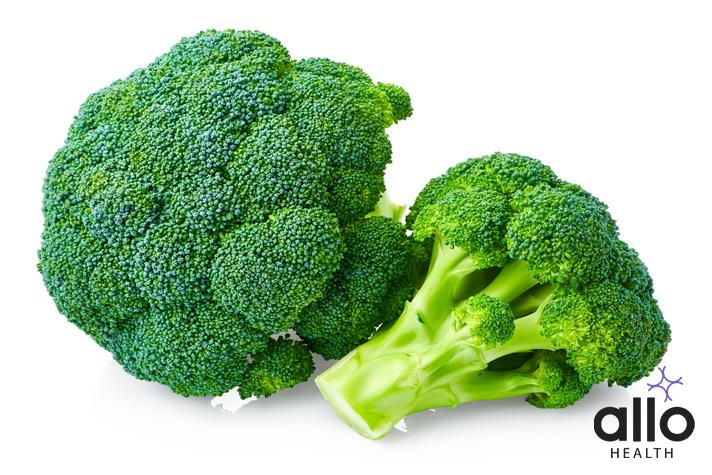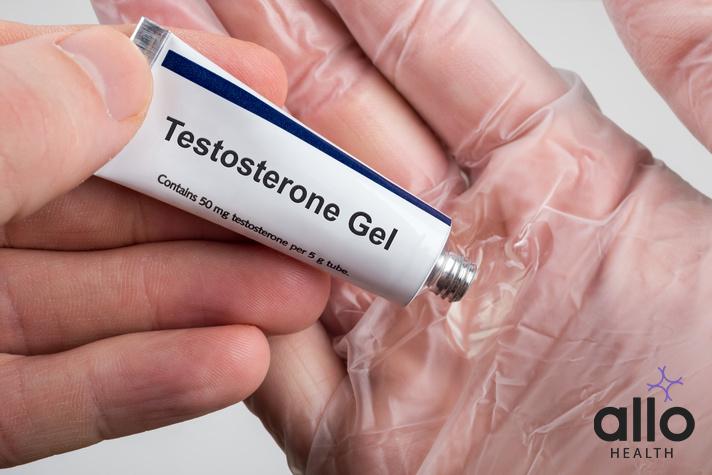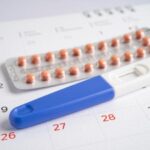How to Increase Your Testosterone Level

Allo Health is dedicated to personalized well-being, offering support and trusted information tailored to individual health goals. The platform emphasizes human-generated content, led by a distinguished medical team of experts, including physicians and sexual health specialists. Their commitment to credibility involves rigorous fact-checking, authoritative research, and continuous updates to ensure accurate, up-to-date information. Allo Health's unique approach goes beyond conventional platforms, providing expert-led insights and a continuous commitment to excellence, with user feedback playing a crucial role in shaping the platform's authoritative voice.

Dr.Joshua has completed his MBBS from Father Muller Medical College,Mangalore.He has been a mental health advocate since the last 6 years and the cofounder of Talkaloud,an NGO dealing with mental health issues in youths and teenagers.He has keen interest in sexual health and has contributed widely in bringing awareness to the general public on the topic.
Why This Was Upated?
Our experts continually monitor the health and wellness space, and we update our articles when new information became available.
Updated on 16 April, 2024
- Article was updated as part of our commitment to diversity, equity, and inclusion.

"The following blog article provides general information and insights on various topics. However, it is important to note that the information presented is not intended as professional advice in any specific field or area. The content of this blog is for general educational and informational purposes only.
Book consultation
The content should not be interpreted as endorsement, recommendation, or guarantee of any product, service, or information mentioned. Readers are solely responsible for the decisions and actions they take based on the information provided in this blog. It is essential to exercise individual judgment, critical thinking, and personal responsibility when applying or implementing any information or suggestions discussed in the blog."
Testosterone is a crucial hormone that plays a fundamental role in the health of both women and men.
In this guide, we’ll explore practical strategies to boost testosterone levels. From lifestyle adjustments to dietary choices, we’ll delve into evidence-based methods that can help improve hormonal balance for better overall health.
What is Testosterone?
- Testosterone is a vital hormone that plays a crucial role in the development and maintenance of male sexual characteristics.
- It belongs to a group of hormones called androgens.
- Testosterone is also present in smaller amounts in females, where it contributes to various physiological functions.
In males: The majority of testosterone is produced in the testes, specifically in specialised cells called Leydig cells. These cells respond to signals from the pituitary gland, a pea-sized gland located at the base of the brain. The pituitary gland secretes luteinizing hormone (LH), which stimulates the Leydig cells to produce testosterone.
In females: Testosterone is mainly produced in the ovaries, although the adrenal glands, located on top of the kidneys, also contribute to its production. In women, testosterone serves important functions related to sexual desire, bone health, and muscle mass, albeit in smaller quantities compared to males.
Symptoms of Low Testosterone Levels
- Decreased Libido: Reduced interest or desire for sexual activity.
- Erectile Dysfunction: Difficulty achieving or maintaining an erection.
- Fatigue and Reduced Energy: Persistent feelings of tiredness and a decrease in overall energy levels.
- Loss of Muscle Mass: Decreased muscle strength and size.
- Increased Body Fat: Particularly around the abdomen.
- Mood Changes: Such as irritability, depression, or a decrease in motivation.
- Difficulty Concentrating: Reduced mental clarity and focus.
- Sleep Disturbances: Insomnia or other sleep-related issues.
- Hair Loss: Thinning of hair on the scalp or body.
- Decreased Bone Density: Weakening of bones, which can lead to an increased risk of fractures.
- Hot Flashes: Similar to those experienced by women during menopause.
- Reduced Sperm Count: May lead to fertility concerns.
- Gynecomastia: Enlargement of breast tissue in men.
- Changes in Cholesterol Levels: Lowered HDL (“good”) cholesterol and increased LDL (“bad”) cholesterol.
Experiencing one or more of these symptoms does not necessarily indicate low testosterone levels, as they can also be caused by other factors. If you suspect you may have low testosterone, it’s recommended to consult a healthcare professional for proper evaluation and guidance.
How to Increase Testosterone Levels
Food Sources
Maintaining optimal testosterone levels is crucial for overall health and well-being. While lifestyle factors and regular exercise play a significant role, nutrition also plays a vital part in supporting healthy hormone production.

- Lean Proteins: Including sources like chicken, turkey, lean beef, and fish rich in omega-3 fatty acids (such as salmon and mackerel) can provide essential amino acids that support testosterone production.
- Cruciferous Vegetables: Adequate intake of vegetables like broccoli, cabbage, Brussels sprouts, and cauliflower contain compounds may help regulate estrogen levels, indirectly supporting healthy testosterone levels.
- Nuts and Seeds: Almonds, walnuts, chia seeds, and flaxseeds are rich in healthy fats, including omega-3 fatty acids and monounsaturated fats. These fats are essential for hormone production.
- Legumes: Beans, lentils, and chickpeas are good sources of zinc and vitamin D, both of which are important for testosterone production. Zinc, in particular, plays a direct role in hormone synthesis.
- Leafy Greens: Spinach, kale, and Swiss chard are rich in magnesium, a mineral that supports muscle function and can indirectly impact testosterone levels.
- Avocados: These are a great source of healthy fats, including monounsaturated fats, which are important for hormone production and overall health.
- Oysters: Known for their high zinc content, oysters can be particularly beneficial for testosterone production. Zinc deficiency has been linked to lower testosterone levels.
- Pomegranates: This fruit contains antioxidants that may help reduce oxidative stress in the body, which can support overall hormonal health.
- Garlic: Contains allicin, a compound known for its potential to increase testosterone levels by stimulating the production of luteinizing hormone.
- Eggs: They are a rich source of protein, healthy fats, and essential nutrients like vitamin D and zinc, all of which are important for hormone production.
- Ginger: Studies suggest that ginger may have a positive impact on testosterone levels and sexual health.
- Tuna: Another source of omega-3 fatty acids, tuna can help support overall hormonal health.
Exercises
Regular exercise is a crucial component in maintaining overall health, including hormonal balance. Here are some exercises that have been shown to potentially help in increasing testosterone levels:
Strength Training
- Compound Movements: Exercises like squats, deadlifts, bench presses, and pull-ups engage multiple muscle groups simultaneously. This stimulates the production of testosterone, as compound movements are demanding and require a higher level of effort.
- Progressive Overload: Gradually increasing the weight you lift over time challenges your muscles and promotes anabolic hormone release, including testosterone.
High-Intensity Interval Training (HIIT)
- Short, Intense Bursts: HIIT involves short bursts of high-intensity exercise followed by brief periods of rest or low-intensity activity. Studies suggest that HIIT can lead to an increase in testosterone levels, particularly when combined with strength training.
Sprinting and Intense Cardio
- Short-Duration Sprints: Engaging in short bursts of high-intensity sprinting has been associated with a temporary boost in testosterone levels. However, excessive long-distance cardio may have the opposite effect.
Compound Bodyweight Exercises:
- Push-Ups, Pull-Ups, Dips: These exercises utilise your own body weight as resistance and engage multiple muscle groups. They can stimulate testosterone production when performed with proper intensity and form.
Rest and Recovery:
- Adequate Sleep: Getting enough quality sleep is crucial for overall hormonal balance, including testosterone production. Aim for 7-9 hours of restful sleep per night.
- Manage Stress: High-stress levels can lead to a decrease in testosterone production. Practicing stress-reducing techniques like meditation, deep breathing, and yoga can be beneficial.
Balanced Exercise Routine:
- Variety: Incorporate a mix of strength training, cardiovascular exercise, and flexibility work into your routine. This helps ensure overall health and hormonal balance.
Avoid Overtraining:
- Rest Days: Giving your body time to recover is essential. Overtraining can lead to a decrease in testosterone levels and an increase in cortisol, a stress hormone.
Consult a Professional:
- Individualised Approach: It’s important to consult with a fitness professional or healthcare provider to tailor an exercise plan to your specific needs and goals.
While exercise can play a significant role in maintaining healthy testosterone levels, it should be part of a comprehensive approach that includes a balanced diet, adequate sleep, and stress management.
Supplements
Supplements can play a supportive role in increasing testosterone levels, especially when incorporated as part of a comprehensive approach to hormonal health. While supplements can be beneficial, they are most effective when combined with a healthy lifestyle, healthy diet, nutrition, and regular exercise.
- Vitamin D: This crucial vitamin has been linked to testosterone production. Studies suggest that individuals with adequate levels of vitamin D tend to have higher testosterone levels. Sun exposure and dietary sources like fatty fish, fortified dairy products, and supplements can help maintain optimal vitamin D levels.
- Zinc: Zinc is an essential mineral that plays a key role in testosterone production. It is involved in the process of converting cholesterol into testosterone. Foods rich in zinc include lean meats, nuts, seeds, and dairy products. Zinc supplements can be considered for those with a deficiency.
- D-Aspartic Acid: This amino acid is involved in regulating the release of hormones, including luteinizing hormone (LH), which stimulates testosterone production. Some studies have shown that D-aspartic acid supplementation may lead to an increase in testosterone levels.
- Tribulus Terrestris: This herb has been traditionally used to enhance male vitality and libido. Some research suggests that it may have a positive impact on testosterone levels, though more studies are needed to confirm its effectiveness.
- Fenugreek: This herb contains compounds that may help increase testosterone levels by inhibiting the enzymes that convert testosterone into estrogen. Fenugreek supplements have shown promise in some studies for improving testosterone levels.
- Ginger: Known for its anti-inflammatory properties, ginger may also have a positive effect on testosterone levels. Research suggests that ginger supplementation may lead to an increase in testosterone production.
- Ashwagandha: An adaptogenic herb, ashwagandha has potential to improve testosterone levels and overall reproductive health. It may also help reduce stress, which can indirectly contribute to improved hormonal balance.
- DHEA: Dehydroepiandrosterone (DHEA) is a precursor hormone that can be converted into testosterone. While DHEA supplements can be effective for some individuals with low levels, it’s important to use them under the guidance of a healthcare professional, as they may not be suitable for everyone.
Medical Interventions
When natural methods prove insufficient in raising testosterone levels, medical interventions may be considered. Any medical treatment should be undertaken under the guidance and supervision of a qualified healthcare provider.

- Testosterone Replacement Therapy (TRT): This is one of the most common and effective medical interventions for low testosterone levels. TRT involves administering synthetic testosterone to supplement or replace the body’s natural production. It can be delivered through various forms including injections, patches, gels, pellets, and creams.
- Clomiphene Citrate (Clomid): Initially developed to stimulate ovulation in women, Clomiphene Citrate can also be used in men with low testosterone. It works by stimulating the pituitary gland to release more luteinizing hormone (LH) and follicle-stimulating hormone (FSH), which in turn, signal the testes to produce more testosterone.
- Human Chorionic Gonadotropin (HCG): This hormone is structurally similar to LH, which helps stimulate the Leydig cells in the testes to produce more testosterone. HCG can be administered through injections.
- Selective Estrogen Receptor Modulators (SERMs): Medications like Tamoxifen and Raloxifene can help increase testosterone levels indirectly by blocking the effects of estrogen on the hypothalamus and pituitary gland. This prompts an increase in the production of LH, which stimulates testosterone production.
- Anastrozole (Arimidex) or Exemestane (Aromasin): These aromatase inhibitors can be used to prevent the conversion of testosterone to estrogen. By reducing estrogen levels, more testosterone may be available in the body.
- Gonadotropin-Releasing Hormone (GnRH) Therapy: This treatment involves the use of medications that mimic the natural hormone GnRH. By continuous administration, GnRH therapy can stimulate the production of testosterone.
- Testosterone Boosting Medications: There are some prescription medications, such as DHEA (dehydroepiandrosterone), that may be used to help increase testosterone levels. These medications work by supporting the production of testosterone precursors.
- Testosterone Pellets: These are small pellets containing testosterone that are implanted under the skin. They release a steady, controlled dose of testosterone over a period of several months.
The choice of intervention and dosage should be determined by a healthcare provider based on a thorough evaluation of an individual’s specific medical history, hormone levels, and overall health.

How Does Low Testosterone Impact Sexual Health?
Low testosterone levels, medically known as hypogonadism, can have a significant impact on sexual health for both men and women. It’s important to understand that while testosterone is primarily associated with male sexual function, it also plays a crucial role in female sexual health.
In Men:
- Reduced Libido (Sex Drive): Testosterone is a key driver of sexual desire in men. When levels are low, many men experience a decrease in their interest in sexual activity.
- Erectile Dysfunction (ED): Testosterone helps stimulate the production of nitric oxide, a molecule that is crucial for achieving and maintaining an erection. Low testosterone levels can contribute to difficulties in achieving or sustaining an erection.
- Difficulty Achieving Orgasm: Some men with low testosterone may experience challenges in reaching orgasm.
- Decreased Sperm Production: Testosterone is essential for sperm production. Low levels can lead to a reduction in sperm count, potentially impacting fertility.
- Reduced Sensation: Some men may experience a decrease in sensation during sexual activity.
- Loss of Morning Erections: Morning erections, which are a natural part of male sexual health, may become less frequent or disappear entirely with low testosterone levels.
In Women:
- Reduced Libido: While testosterone is present in much smaller quantities in women compared to men, it still contributes to sexual desire. Low levels can lead to a decrease in interest in sexual activity.
- Decreased Sensation: Testosterone can influence the sensitivity of the clitoris and other sexual organs in women. Reduced levels may lead to decreased sensation during sexual activity.
- Vaginal Dryness: Testosterone helps maintain the health of vaginal tissues and the production of natural lubrication. Low levels can lead to vaginal dryness, which can cause discomfort during intercourse.
- Difficulty Achieving Orgasm: Some women with low testosterone levels may experience challenges in reaching orgasm.
- Changes in Body Image and Confidence: Testosterone can influence body composition and muscle mass. Low levels may lead to changes in body image, which can impact sexual confidence.
Note: The impact of low testosterone on sexual health can vary from person to person.
Key Takeaways
- Testosterone is a crucial hormone for both men and women, affecting various aspects of health.
- This guide offers evidence-based strategies to naturally boost testosterone levels through lifestyle and dietary changes.
- Testosterone, belonging to androgens, plays a key role in male sexual characteristics and is also present in females.
- In males, it is primarily produced in the testes, stimulated by luteinizing hormone (LH) from the pituitary gland.
- In females, it’s mainly produced in the ovaries, with contributions from the adrenal glands on top of the kidneys.
- Low testosterone levels can lead to symptoms like reduced libido, erectile dysfunction, fatigue, and mood changes.
- Exercise, nutrition, and supplements play a role in supporting healthy testosterone levels.
- Medical interventions like Testosterone Replacement Therapy (TRT) may be considered for severe cases.
Frequently Asked Questions
Q: Can extra-virgin olive oil help increase levels of testosterone?
A: While extra-virgin olive oil is a healthy dietary choice, there’s limited direct evidence linking it to significant testosterone level increases. However, its high content of monounsaturated fats and antioxidants may contribute to overall hormonal health in moderation.
Q: Is getting enough sleep important for maintaining optimal testosterone levels?
A: Yes, adequate and quality sleep is crucial for overall hormonal balance, including testosterone production.
Q: Can stress management techniques help improve testosterone levels?
A: Yes, practices like meditation, deep breathing, and yoga can help reduce stress levels, indirectly supporting healthy hormonal balance.
Q: Is it possible to naturally increase testosterone levels without resorting to medical interventions?
A: Yes, adopting a balanced lifestyle with proper nutrition, regular exercise, adequate sleep, and stress management can positively impact testosterone levels.
Q: What role does age play in testosterone levels, and can it be managed as one gets older?
A: Testosterone levels naturally decline with age. While this is a normal process, adopting a healthy lifestyle can help maintain optimal levels and mitigate age-related decreases.






































